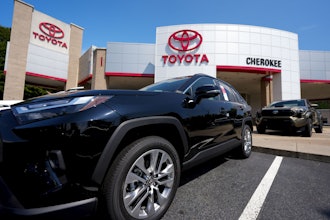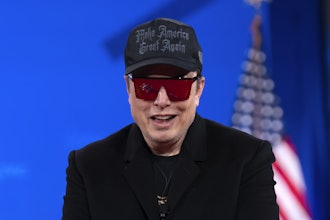
Ten nonprofits serving young people in Detroit will get an unusual, lasting gift as part of a campaign started by Lisa Ford and her husband, Bill Ford, the executive chair of Ford Motor Co.
The Fords, along with The Children's Foundation, Tuesday announced their plans to raise at least $10 million to set up permanent endowments for ten nonprofits in the city alongside Ford's investment in the refurbishment of Michigan Central Station, a long vacant train station in Detroit.
"Creating endowments for these ten youth serving organizations is really a way to say, 'These organizations that serve tens of thousands of kids every day need to be here as long as that train station is,'" said Andrew Stein, president and CEO of The Children's Foundation, which is based in Detroit and was established in part by proceeds from the sale of the Children's Hospital of Michigan in 2011.
Endowments are funds a nonprofit can invest and the annual financial returns from those investments can go into the nonprofit's budget. They are usually associated with major hospitals and universities — with Harvard University's endowment famously reaching over $50 billion — rather than small community nonprofits. Detroit-area nonprofits may apply in June, when Michigan Central Station will reopen, and ten selected organizations will each receive $500,000 to launch an endowment.
The Children's Foundation will manage the nonprofits' endowments and offer them guidance and technical support over two years. The campaign will also match up to $500,000 that the nonprofits raise themselves, meaning each potentially could end up with $1.5 million to start an endowment.
Lisa Ford said the idea for creating endowments for youth nonprofits evolved out of their commitment to supporting a robust and vibrant future for the city and the automotive industry.
"I was just blown away by these people who had ideas and deep feelings about how to help children in Detroit," she said, explaining that part of the satisfaction of the campaign was bringing in other donors. "The whole idea of Michigan Central is collaboration and inclusivity. So it wasn't something we wanted to do by ourselves. We would never have thought of it that way."
Ford was also inspired by the success of another fundraising effort she led in September to benefit a different Detroit children's organization, The Children's Center. That has put the campaign on a tight timeline to raise $10 million by June, which she said has actually been a boon in some ways.
"While that shocked a lot of people. It also allowed for us to say, you know, 'We need an answer now,'" she said.
Endowments are relatively rare among charitable nonprofits, with only slightly more than 10% reporting to the Internal Revenue Service that they have one. Research from Todd Ely, associate professor at the University of Colorado Denver, and his coauthors found that larger, older nonprofits and certain types like universities, hospitals, land trusts and arts institutions are more likely to have endowments. They lend organizations a stronger sense of financial credibility, Ely said, though they are not a panacea for all financial problems.
"You just have an organization that donors know isn't going anywhere, and it feels like a fairly safe bet to support relative to many other nonprofits that might be operating more on a shoe string," Ely said.
The main debate over endowments is whether the assets are more useful now or in the future, with some arguing philanthropic dollars should be used as quickly as possible. Others see endowments as a vehicle for generational equity, putting the power to direct funds into the hands of the nonprofit and its future leaders.
Different types of endowments also offer different tradeoffs. Meadow Didier, director of consulting for Nonprofit Finance Fund, recommends a type of endowment that allows the nonprofit's boards and leaders to access the principle amount of the endowment when needed. A quasi-endowment, also called a board designated reserve fund, gives nonprofit leaders more flexibility than a permanent endowment, she said, though she praised any donor thinking about the long-term financial health of nonprofits.
Stein, of The Children's Foundation, said the campaign is seeking input from community and foundations leaders in designing the application process and selection criteria, and that they intend to use a broad definition for the kinds of services eligible organizations might offer.
The foundation will convene a community panel to select the nonprofits, Stein said, emphasizing that the decision will not be made in a boardroom at Ford or by the foundation.






















